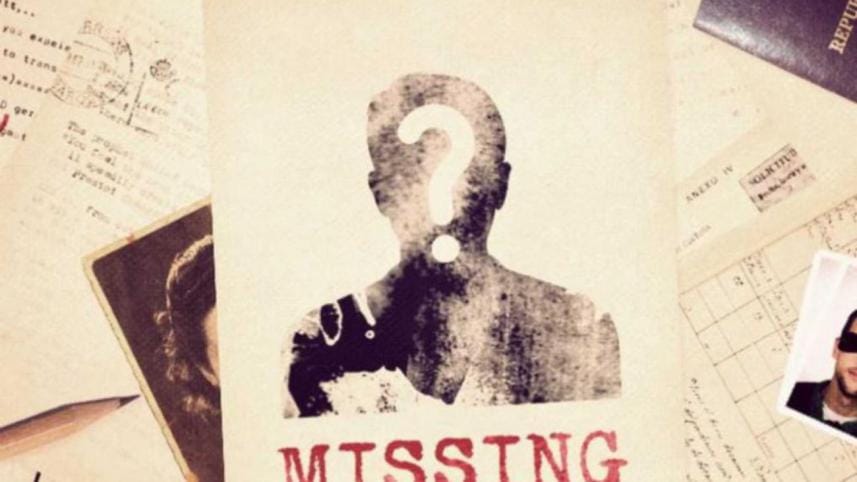Denial Is Not The End Of Responsibility Between policing and serving

The law enforcing agencies have a lot to answer for the incidences of abduction and disappearances, a phenomenon that has assumed alarming regularity. Reportedly, there are over 300 victims of enforced disappearances who remain traceless. Predictably, the families point fingers at the law enforcing agencies—the manner in which they were picked up, as described by the families, leaves very little to the imagination as to the likely identity of the abductors.
Denials by the police do very little to mitigate the fear and suspicion that people by and large have developed in their mind that most of the cases of people being picked up by plainclothes men and vanishing altogether, have to do with the state agencies. Unfortunately, we are served from time to time with very bizarre explanations by people in position of responsibility which expose their scant regard for the intellect of the common man. Such comments would evoke laughter were it not for the fact that the matter has to do with life and death (more often the latter) of human beings.
Those who have been fortunate enough to return, very few in number though, have been afflicted, it seems, by sudden attacks of amnesia since none of them can (will not to be exact) recount their experience at the time of their kidnapping and the period they were in captivity. Some of them end up in the most unlikely of places. It defies all rationale that a BNP politician, apparently trying to "escape" the police would not only choose to leave Dhaka but the country as well, only to end up near a Guwahati police station in Assam. Certainly, criminals find safe sanctuary across the border no doubt, but one has never heard of a "fugitive" ending up at the lion's den while trying to escape from the wolves, deliberately.
But let us give the benefit of doubt to the agencies that they have nothing to do with these disappearance or abductions. If that were true then we are all living in a dangerous environment where a group or groups masquerading as law enforcing agencies are virulently active. They identify themselves as members of various agencies and move with impunity kidnapping people, sometimes in broad daylight. Their modus operandi betrays the action of a well-trained outfit quite adept in such furtive operations—from deactivating the CCTV to using of chloroform on the victims. Their getaway is equally efficiently managed.
Given these circumstances, and accepting the common refrain of denial by the authorities, should it not be enough to raise the hackles of the intelligence and other law enforcing agencies to compel them to track these elements out and snub them for good. There are enough evidences, captured by CCTV as well as material witnesses that should provide enough leads to identify the perpetrators and the vehicles, yet they have remained untraced.
And who are the victims? They are mostly individuals belonging to the opposition political camps. Some of them are businessmen too, and professionals. Yes there have been a few victims belonging to the ruling party, but they were the ones that have had the gall to cross swords with the stronger faction of the group they belonged to. And what is the purpose of the kidnappings? Is it for ransom? Statistics show very little correlation between the abductions and demand for ransom.
This is a serious law and order issue that cannot be dismissed by outlandish comments. Despite denials, the common perception is that these unfortunate people are victims of the state machineries. And it is up to the state agencies to disprove the allegations and clear the so-called misperception. They must placate the minds of the victims' families by arresting the kidnappers passing off as members of the state agencies.
While some of the abductions were for ransom, and one cannot put it past the realm of possibility that some of the perpetrators are members of one or the other law enforcing agencies exploiting their uniform for a quick buck, many if not all, kidnapping had political motives. For a start, shouldn't every arrest be supported by a valid warrant? And shouldn't the plainclothes men be obliged to produce a valid identity to the intended arrestee. Why should a genuine accused have to be picked up in a clandestine manner, unless it was to shortcut the law?
We have been called out by various human rights organisations, both national and international, a call that was renewed yesterday, The Day of the Victims of Enforced Disappearance, to stop recurrence of this outrageous phenomenon, and to find the whereabouts of the victims. There is more to the job of the agencies than only policing. Serving the people is one of the many articles that police go by. Law cannot be violated by the agencies in maintaining law. When that happens the distinction between criminals and policemen is blurred.
Brig Gen Shahedul Anam Khan ndc, psc (Retd) is Associate Editor, The Daily Star.




 For all latest news, follow The Daily Star's Google News channel.
For all latest news, follow The Daily Star's Google News channel.
Comments